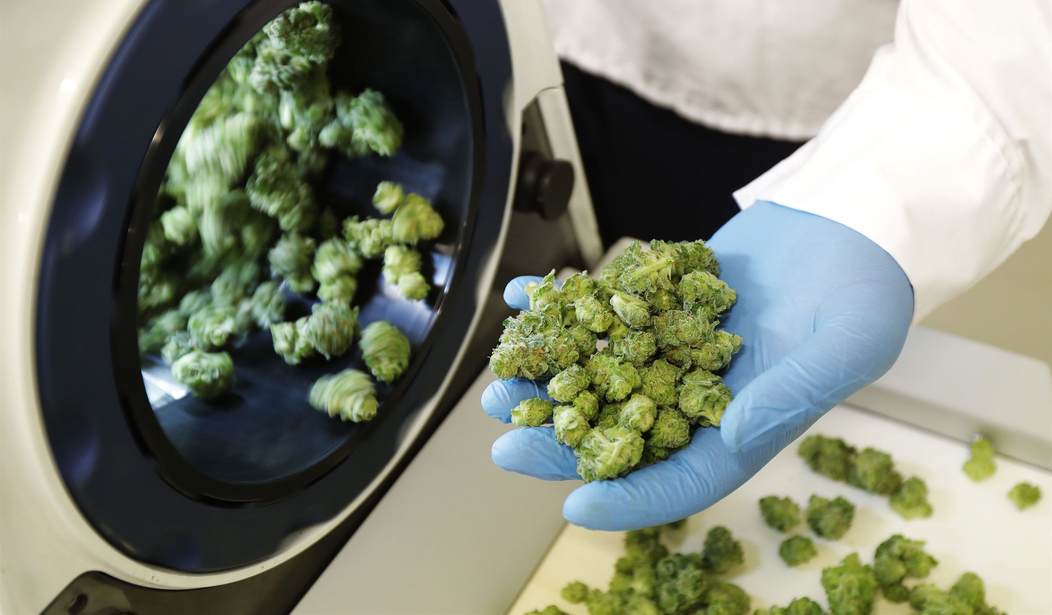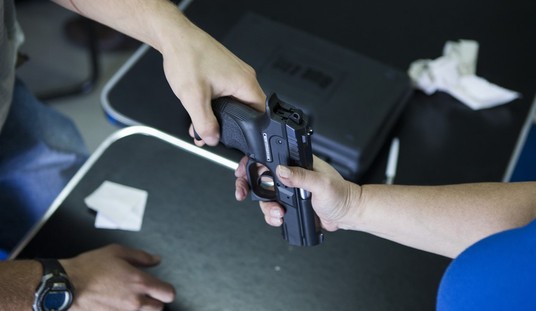The Fifth Circuit Court of Appeals may have upheld the federal prohibition on illegal aliens possessing firearms, but in another decision this week the appellate court cast doubt on the federal statute barring "unlawful" users of drugs from exercising their Second Amendment rights.
It's not the first time the Fifth Circuit has ruled that some prosecutions under Section 922(g)(3) don't pass the "text, history, and tradition" test, but it is the first decision from the Fifth Circuit dealing with the federal prohibition on gun possession for "unlawful" users of drugs since SCOTUS handed down its ruling in Rahimi and remanded several other prohibited persons cases down to the appellate courts for further review.
In the most recent case, decided on Wednesday, the Fifth Circuit held that federal prosecutors were wrong to charge Paola Connelly with violating Section 922(g)(3) for possessing a gun while she "occasionally" used marijuana, noting she was sober at the time of her arrest.
The short of it is that our history and tradition may support some limits on a presently intoxicated person’s right to carry a weapon (and for that reason Paola’s facial challenges to §§ 922(g)(3) and 922(d)(3) fail), but they do not support disarming a sober person based solely on past substance usage. Nor, contrary to what the government contends, do restrictions on the mentally ill or more generalized traditions of disarming “dangerous” persons apply to nonviolent, occasional drug users when of sound mind.
In other words, Section 922(g)(3) wasn't overturned, but the Fifth Circuit says the statute is far more limited than what the Justice Department contends.
As the Fifth Circuit notes, the DOJ offered several arguments in favor of prosecuting and imprisoning Connelly; pointing to historical laws barring gun possession for the mentally ill, "dangerous" individuals, and intoxicated individuals. The appellate court rejected each of those arguments; pointing out that there's no evidence that mentally ill individuals were prohibited from exercising their Second Amendment rights in the 18th century (and that the federal prohibition didn't come into existence until 1968), asserting that "our history and tradition of disarming 'dangerous' persons does not include non-violent marijuana users" like Paola Connelly, and noting that while "some laws banned carrying weapons while under the influence, none barred gun possession by regular drinkers" or users of intoxicating substances.
Boiled down, § 922(g)(3) is much broader than historical intoxication laws. These laws may address a comparable problem—preventing intoxicated individuals from carrying weapons—but they do not impose a comparable burden on the right holder. In other words, they pass the “why” but not the “how” test. Taken together, the statues provide support for banning the carryof firearms while actively intoxicated. Section 922(g)(3) goes much further: it bans all possession, and it does so for an undefined set of “user[s],” even while they are not intoxicated.
As applied to Paola, § 922(g)(3) restricts her rights more than would any of the historical and traditional laws highlighted by the government. While older laws’ bans on “carry” may be analogous to § 922(g)(3)’s ban on“possess[ion],” there is a substantial difference between an actively intoxicated person and an “unlawful user” under § 922(g)(3). The statutory term “unlawful user” captures regular marijuana users, but the temporal nexus is most generously described as vague—it does not specify how recently an individual must “use” drugs to qualify for the prohibition.
Paola stated that she would at times partake as a sleep aid or to help with anxiety, but we do not know how much she used at those times or when she last used, and there is no evidence that she was intoxicated at the time she was arrested. Indeed, under the government’s reasoning, Congress could (if it wanted to) ban gun possession by anyone who has multiple alcoholic drinks a week from possessing guns based on the intoxicated carry laws.
The sad thing is that I'm sure there are some anti-gunners who would love to see Congress enact that exact prohibition; not because they're teetotalers when it comes to alcohol, but because that would deprive tens of millions of Americans of their Second Amendment rights.
So what happens next? In the case of Connelly, the DOJ could seek an en banc review from the Fifth Circuit, appeal directly to the Supreme Court, or accept the appellate court's ruling and stop trying to put Connelly behind bars for being a pot smoker who owned a gun. But Section 922(g)(3) remains valid law, not only in the Fifth Circuit's jurisdiction but across the country, so the threat of prosecution for non-violent cannabis users like Connelly continues.









Join the conversation as a VIP Member